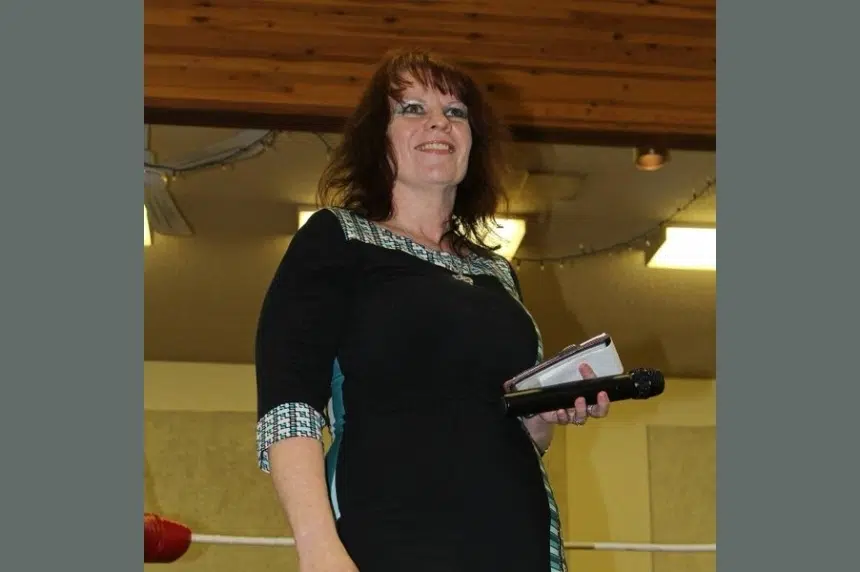Longer prison sentences won’t do much to reduce the carnage on Canada’s roads caused by drunk driving, according to the director of legal policy for Mother’s Against Drunk Driving (MADD).
Robert Solomon, who also teaches law at the University of Western Ontario, reacted Thursday to the sentencing of Catherine McKay, 49.
McKay was sentenced Wednesday to 10 years in prison at a hearing in Saskatoon Provincial Court. She pleaded guilty to impaired driving causing the deaths of Jordan, Chanda, Kamryn and Miguire Van de Vorst in a Jan. 3 car crash on at the intersection of Wanuskewin Road and Highway 11. Court heard McKay had about three times the legal limit of alcohol in her blood at the time of the collision.
Solomon said McKay’s penalty is broadly in line with longer sentences seen for drunk drivers who kill in recent years. He said he felt sentences in the past were far too short to reflect the seriousness of crimes, so he supported the move to stiffer penalties to an extent. In particular, he said he was pleased to see police and prosecutors more willing to lay the charge of impaired driving causing death.
However, he said he’d like to see public debate move past the issue of adding extra years onto sentences for people after they’ve already killed someone.
“The most important factor in deterrence is the perceived and actual rates of apprehension. The second most important factor is the speed with which the sanction is imposed following the behaviour. Penalty is the least significant factor,” he said.
Put plainly, Solomon said Canada doesn’t do enough to make people feel like they’ll get caught if they drink and drive.
“We know that you have to drink and drive hundreds of times before it’s likely you’re going to be stopped and checked,” he said. Solomon put this down to Canadian law. He said police in this country can only make a driver give a breath sample if they can establish reasonable suspicion the person has been drinking. He said this is in contrast to most other developed countries, where every driver can be tested.
“Instead of going through that rigamarole: ‘how are you? where are you coming from?’ and the officer sticks his nose in the car to see if he can detect the odour of alcohol, they simply say: ‘blow,'” he said, adding that countries where random breath testing is used have seen drunk driving deaths fall by as much as 25 per cent.
He said Australia is a good example, where police go for maximum deterrence by putting checkstops on the busiest roads, often at peak times of day.
“So everyone passing by, whether you’re walking, you’re biking, you’re on a bus, or in your car knows that you could be stopped anytime, anywhere, and asked for a breath sample if you’re driving,” he said.
After mandatory breath testing, Solomon said the second-most effective policy is reducing the blood-alcohol limit allowed for drivers. He said this is backed up by data from Ireland, Australia, New Zealand and throughout Europe. He said he’d like to see the rate come down from 0.08 to 0.05, again making it closer to other developed countries.
“So we’re out of line on the two most effective impaired driving countermeasures. That’s why Canada’s rate is much higher than in most other comparable jurisdictions, ” he said.
Solomon said the result of not adopting these measures is that Canadians drink less than people in many developed countries, but are still more likely to die due to drunk drivers.
“Canada has a relatively low per capita rate of alcohol consumption, and yet one of the worst records in terms of alcohol-related crash deaths,” he said.
While random breath testing and lowering alcohol limits are federal matters, Solomon said the provincial government could also be doing more.
He proposed making new drivers abide by a 0.00 blood-alcohol limit until the age of 21. He said he’d also like to see Saskatchewan join Alberta and British Columbia in allowing for people who blow over to have their vehicles impounded immediately, under a policy known as automatic administrative vehicle impoundment.
“In both provinces, rates of impaired driving fell sharply,” he said.
Solomon also pointed to the need for stricter enforcment of liquor licensing laws. He noted that in McKay’s case, she was served alcohol in two bars before she killed the Van de Vorsts, with the court record showing she’d been drinking before she even left the house.
“It’s against the law in every jurisdiction in this country, including Saskatchewan. It’s illegal for a bar to allow someone in who’s boisterous, riotous or intoxicated. It’s illegal for them to serve them any alcohol,” he said.
Solomon said getting changes made is a matter of political will, as some of these measures would likely see people upset at the inconvenience caused by tougher checkstops and stricter alcohol limits.
“I think our politicians are quite happy to enact heavier penalties because it’s not going to alienate anyone, it is popular. The problem is, it’s not going to significantly reduce the injuries and deaths on our roads,” he said.
Solomon said brewers and distillers would likely oppose his proposed changes with high-priced lobbying efforts.
“We’ve got to put the safety of you and your family ahead of the profits of the alcohol industry. We play this fool’s game. They make all the money, you and I pick up all the pieces. Fight after fight. Crash after crash,” he said.











